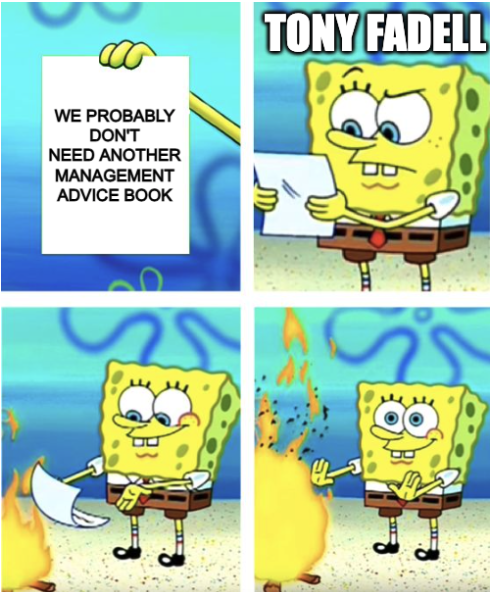
Sponsored By: INDX
Are you drowning in bookmarks or Chrome tabs?
Introducing INDX—it’s like Pinterest for learning anything. INDX can:
- Save any article, podcast, or Twitter thread you find interesting.
- Remind you to go back to the best content so you actually consume and learn it.
- Surface articles on the topics most interesting to you, from the people you trust.
Since launching earlier in the year, INDX has become the go-to tool for creators, operators, and investors in tech to ditch information overload and actually learn.
Download INDX on the App Store today and start taking more control of your content.
You, my beloved audience, are greedy little advice goblins.
Each week, I receive two varieties of comments without fail. 1st) “Very actionable, good takeaways!” Or 2nd) “Too theoretical, needs takeaways!” If I do not tell you, with painfully exacting detail, how you should invest or operate differently because of what I researched, someone will complain about it.
This is entirely understandable. The majority of business books are so atrociously loquacious, so horrendously long-winded, that the authors could’ve had a career as a set of bagpipes. (To clarify: this is a joke about them being full of hot air).
In response to this phenomenon, the intelligent connoisseur of strategy-guru-type books has developed an aversion to anything that doesn’t cut to the heart of the matter immediately. If something even faintly smells of a 500-word idea stretched into a 3,000-word essay, the rejection reaction is swift and powerful.
While this means I can’t write as fun or theoretical as I would sometimes like, I understand and respect why y’all feel this way. That being said, I’ll never change and you can go kick rocks if you don’t like how I do things around here.
Entirely hypocritically, I hold the same view about every other creator on planet earth besides myself. I hate when a business writer draws it out for the sake of ego.
Thankfully for all of us brevity maximalists, today is a review of a book that should scratch that perverted itch for concise, actionable takeaways. Today we are talking about Build by Tony Fadell which was just published a month ago. I hope to answer two questions: is the book good and is his argument correct.
Is the Book Good?
Fadell is a renowned figure among the consumer gadget nerds—he led the teams that invented the iPod, the iPhone, and was the CEO/Co-founder of Nest, which sold to Google for mucho dinero. I am an unabashed fan of what he has helped create. The iPhone is, in my opinion, one of the most important inventions since the Gutenberg press. I find it so inspiring that I have this hanging on my wall.
Fadell leverages that experience to create something that is housed between book covers but isn’t what I would describe as a novel. It felt more like an internal wiki of his brain. There was a rough storyline where the reader follows the progression of his career. But really, the meat of the text is found in the content guide. Pick the problem you are facing, open up the chapter, and away you go.
The Only Subscription
You Need to
Stay at the
Edge of AI
The essential toolkit for those shaping the future
"This might be the best value you
can get from an AI subscription."
- Jay S.
Join 100,000+ leaders, builders, and innovators

Email address
Already have an account? Sign in
What is included in a subscription?
Daily insights from AI pioneers + early access to powerful AI tools











Comments
Don't have an account? Sign up!
Yes! Confirmation bias is such a strong presence in tech, thanks for including it as a perspective here.